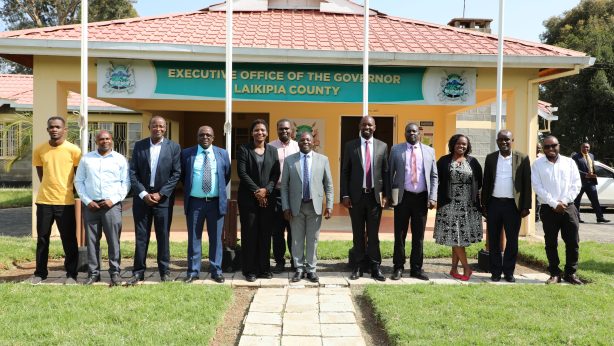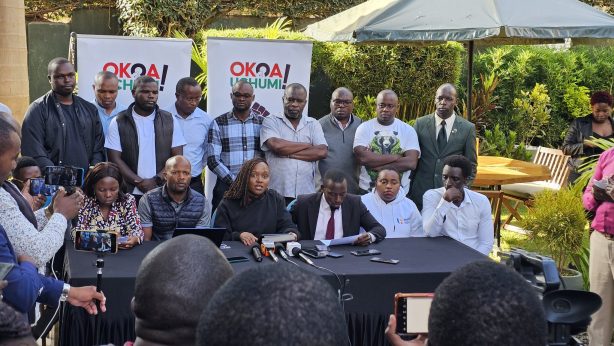The Untapped Potential of Local Elections in Kenya
As 2024 continues to unfold, the globe is abuzz and busy with electoral activities; with about half of the world’s population having cast a ballot or planning to do so. Amidst the excitement surrounding national elections, the importance of local elections often goes unnoticed. While we eagerly await the results of presidential races and parliamentary contests, the ballot counts for local governors or members of county assemblies rarely make headlines. Yet, it is at the local level where decisions are made that directly impact our daily lives – from the quality of public services to the condition of our roads and schools.
The late U.S. House Speaker Tip O’Neill’s famous quote, “All politics is local,” emphasizes the crucial role of a politician’s ability to understand and address constituents’ concerns in determining their success. The recent local elections in Turkey exemplify the power of local politics, where opposition candidate Ekrem Imamoglu’s victory not only challenged the ruling party but also positioned him as a potential contender in future presidential elections. Despite their importance in shaping the fabric of our communities and determining the direction of our collective future, young people often overlook local elections, focusing instead on national politics. Nevertheless, local officials are more likely to listen to their constituents’ concerns, making local elections a crucial avenue for driving change from the ground up.
The Kenyan Context: Devolution and Its Discontents: In Kenya, the significance of local elections cannot be overstated. With the advent of devolution following the promulgation of the 2010 constitution, the country underwent a seismic shift in its governance structure. The creation of counties empowered local communities to govern their affairs and address the unique needs of their populations.
Local elections in Kenya have not received the attention they deserve, especially from the youth, despite the promise of devolution; they are sometimes eclipsed by the passion surrounding presidential races. The findings from the Twaweza’s Sauti za Wananchi (mobile phone panel survey), present a concerning picture of young participation in electoral and governance processes. According to the survey, young people’s intention to vote in the run-up to the 2022 elections was significantly lower than that of the general public (71%), with only 56% of those between the ages of 18 and 24 saying they would cast a ballot. Even among registered voters, the main excuses for not casting a ballot were the perceived lack of influence, the hassle, and the disappointment with the political system. Furthermore, there is still little involvement of young people in county-level decision-making.
Challenges and Opportunities: Kenya’s electoral landscape is filled with challenges that undermine the integrity and effectiveness of local elections. The electoral process is still beset by political favouritism, tribal connections, and corruption, all of which damage its legitimacy and efficacy. Furthermore, local issues are frequently eclipsed by national politics, which further reduces the significance of local elections from the perspective of voters. The transfer of functions from Nairobi County to the national government’s Nairobi Metropolitan Services (NMS), the use of impeachment as a political tool, and the struggle around the timely disbursement of county allocations from the national government highlight the vulnerability of local governments to external pressures.
Amidst these challenges lie opportunities for change.
- Strengthening Civic Education: Civic education initiatives must be strengthened to ensure that citizens are well-informed and empowered to participate in the democratic process. Beyond voter registration drives and political rallies, the government should focus civic education on equipping citizens with the knowledge and tools to hold their leaders accountable and demand transparency and effective governance. This also calls for the CSOs and young people to start grassroots movements to educate their fellow youths on the importance of engaging in the electoral processes
- Raising the Bar for Local Leaders: The election of effective governors and Members of County Assemblies (MCAs) requires more than just popularity or political affiliations; it demands leadership, vision, and an unwavering commitment to serving the interests of the populace.
We must demand more from our local leaders, eschewing popularity contests in favour of vision, integrity, and a commitment to serving the people. Transparency and accountability must be non-negotiable.
- Decoupling Local (County) and National Elections: As it stands, the merger and synchronization of all the elections (presidential, parliamentary, and county races) every five years has meant that local concerns are frequently drowned out by the noise of national debates.
I believe by separating national and local electoral cycles, the attention of voters and the media can be redirected toward local issues, ensuring that they receive the attention they deserve.
Holding county elections at the midpoint between national elections, for example, would help create more space for voters to assess their options and the performance of their local leaders and make informed decisions about who should represent them going forward.
- Fortifying Intergovernmental Cooperation: For the smooth and effective running of counties, intergovernmental cooperation must be fortified to be robust, and measures implemented to combat corruption and political interference in local elections. This requires a collaborative effort, and synching of activities and goals between the State Department of Devolution, the Council of Governors (CoG), and the Intergovernmental Relations Technical Committee (IGTC).
Local elections are crucial in shaping Kenya’s future, as counties now play a significant role in issues that were once solely under the national government’s purview. As young people, we have the opportunity to effect change from the grassroots level by electing the right leaders and demanding excellence from them.
By actively participating in local politics, we can create a new political culture that prioritizes issues, service delivery, and grassroots involvement over personalities, ethnic loyalty, and top-down control. Progress may be gradual, but our legacy will be determined by our commitment to building a country that serves every citizen, one local election at a time. The true essence of democracy lies not in grand gestures of national politics but in the humble, persistent work of building strong, vibrant communities from the ground up.
This article was written by Filbert Mbugua – A Consultant Youth Researcher at Twaweza Kenya and can be contacted via consultantfm@twaweza.org


